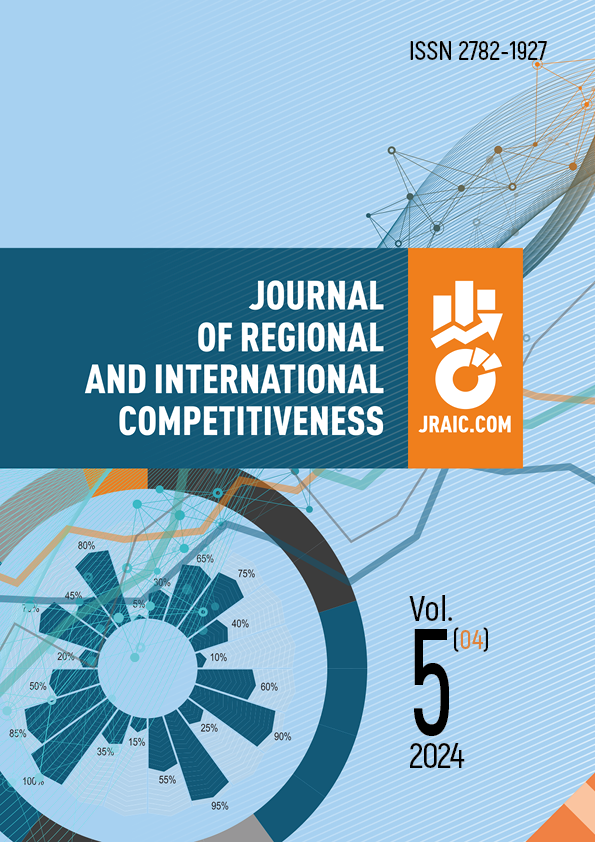Ivanovo, Ivanovo, Russian Federation
Ivanovo, Ivanovo, Russian Federation
The article examines the stages of the development of economy digitalisation, evolution, and change in the perception of the phenomenon under study in the scientific literature. Digitalisation is a key factor in the transformation of global and national economic systems. Indeed, digitalisation importance is a catalyst for the modernisation of all spheres of economic life and the formation of new models of its participant’s interaction. The article considers the prerequisites for concept formation and highlights four main stages: 1960s-1990s – automation of individual production processes; 1990s-2000s – the development of network technologies and the introduction of Internet commerce; 2000s-2010s – mobile technologies and platform solutions; 2010s-current time – integration of artificial intelligence, big data and blockchain technologies. The research analyses theoretical, effective, structural, technological, resourcing, communicative, motivational, intermediary-service, instrumental, and managerial approaches to digitalisation. Their study allows ones to comprehensively assess the key aspects of the digitalisation of the economy: from increasing productivity to transforming the entire economic structure. The analysis of each approach reveals how digitalisation affects the economy, transforming its models, processes and resources, and reveals its multi-layered nature in modern realities. In addition, the research focuses on the role of digitalisation in establishing of new economic models, innovative ecosystems, and global digital platforms. However, the article considers the social aspects of digitalisation, including the impact on employment, inequality, and social interactions. Moreover, the article examines the impact of digitalisation on globalization and economic integration, its role in reforming government and corporate structures. The authors emphasise digitalisation as a foundation of a new economy.
digitalisation of the economy, stages of economy digitalisation, approaches to understanding of economy digitalisation, digital transformation
1. Bell, D. (1986). The social framework of the information society. The new technocratic wave in the West. Moscow: Progress (in Russian).
2. Vasilenko, N. V., & Kudryavtseva, K. V. (2017). The formation of a new type of economy: the interdependence of its digitalization and service. Sankt-Peterburg: Federal'noe gosudarstvennoe avtonomnoe obrazovatel'noe uchrezhdenie vysshego professional'nogo obrazovaniya "Sankt-Peterburgskij politekhnicheskij universitet Petra Velikogo (in Russian).
3. Irodova, E. E. (2023). Digital transformation of the socioeconomic environment: improving the quality of consumer experience. Teoreticheskaya ekonomika, 11(107), 84-95. Retrieved from https://ystu.editorum.ru/ru/nauka/issue/4965/view (in Russian).
4. Castels, M. (2000). The Information Age: economics, society, culture: translated from English. Moscow: Izdatel'skij dom vysshej shkoly ekonomiki (in Russian).
5. Abdrakhmanova, G. I., Gokhberg L. M., & Demyanova A. V. (2023). Platform economy in Russia: Development potential. M.: Izdatel'skij dom vysshej shkoly ekonomiki (in Russian).
6. Tolkacheva, S. A. (2015). Industrial policy in the context of new industrialization. Moscow: MAKS Press (in Russian).
7. Prokhorov A., & Konik L. (2019). Digital transformation. Analysis, trends, world experience. Moscow: KomNews Group (in Russian).
8. Sokolov, A. M. (2022). The problem of universalization of indicators for assessing the level of the digital economy. Teoreticheskaya ekonomika, 3(87), 87-96. Retrieved from https://ystu.editorum.ru/ru/nauka/issue/4965/view (in Russian).
9. Dmitrieva, N. E., Sanina, A. G., & Styrin E. M. (2023). Digital transformation in public administration. Moscow: Izdatel'skij dom vysshej shkoly ekonomiki (in Russian).
10. Vishnevskiy, K., Gokhberg, L., Dementiev, V., Dranev, Yu., Klubova, M., Kotsemir, M., Kuzminov, I., Lola, I., Privorotskaya, S., Rudnik, P., Sokolov, A., Streltsova, E., Turovets, Yl., Fursov, K., & Khabirova, E. (2021). Digital technologies in the Russian economy. Moscow: Izdatel'skij dom vysshej shkoly ekonomiki (in Russian).
11. Schwab, K. (2017). The Fourth Industrial Revolution. Moscow: Izdatel'skij dom "E" (in Russian).
12. Acs, Z. J., & Audretsch, D. B. (1998). Innovation in large and small firms: An empirical analysis. The American Economic Review, (78), 678-690.
13. Bonina, C., Koskinen K., & Eaton B. (2021). Digital platforms for development: Foundations and research agenda. Information Systems Journal. Special Issue Paper, 31(6), 869-902.
14. Brynjolfsson, E., & McAfee, A. (2011). Race against the machine: How the digital revolution is accelerating innovation, driving productivity, and irreversibly transforming employment and the economy. Massachusetts: Digital Frontier Press Lexington.
15. Cascio, W. (1999). Virtual Workplaces: Implications for Organizational Behaviour. In the Virtual Organization. Chichester: Wiley.
16. Jullien, B. (2012). Two-sided B to B platforms. The Oxford handbook of the digital economy. Oxford: Oxford University Press.
17. Laukkanen, M., & Tura, N. (2020). The potential of sharing economy business models for sustainable value creation. Journal of Cleaner Production, (253), 1-9.
18. Measuring the Digital Transformation: A Roadmap for the Future (2019). Paris: OECD Publishing. Retrieved from https://www.oecd.org/publications/measuring-the-digital-transformation-9789264311992-en.htm
19. Moore, J. F. (1993). Predators and prey: a new ecology of competition. Harvard Business Review, (6), 75-86.
20. Negroponte, N. (1995). The digital revolution: Reasons for optimism. Washington: The Futurist.
21. North, D. C. (1992). Transaction costs, institutions, and economic performance. California San Francisco, CA: ICS Press.
22. Bresnahan, T., Gambardella, A., & Saxenian, A. (2001). "Old economy’ inputs" for new economy outcomes: Cluster formation in the new Silicon Valleys. Industrial and corporate change, 10(4), 835-860.
23. Powers, T. L. (1993). General Motors' 1958 Reorganization: Transition Away from the Market. In Proceedings of the Conference on Historical Analysis and Research in Marketing, (6), 17-25.
24. Solow, R. (1987). We`d better watch out. New York Times, (July 12), 36.
25. Tapscott, D. (1996). The Digital Economy: Promise and Peril In The Age of Networked Intelligence. New York: McGraw-Hill.




















